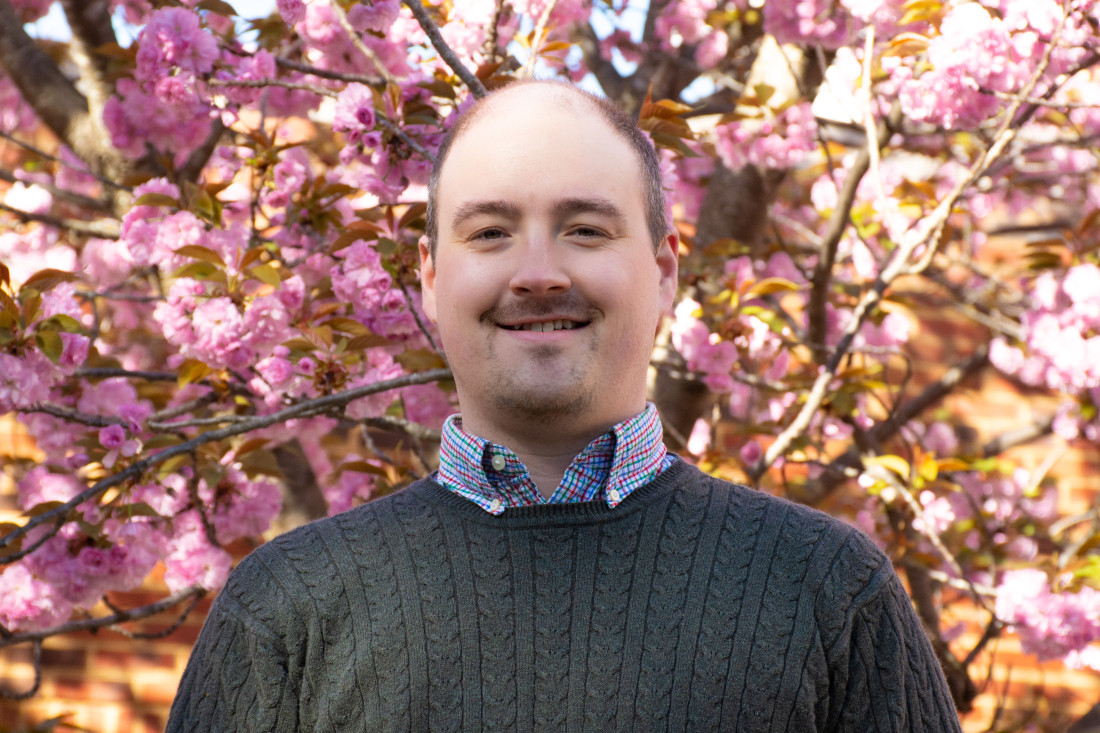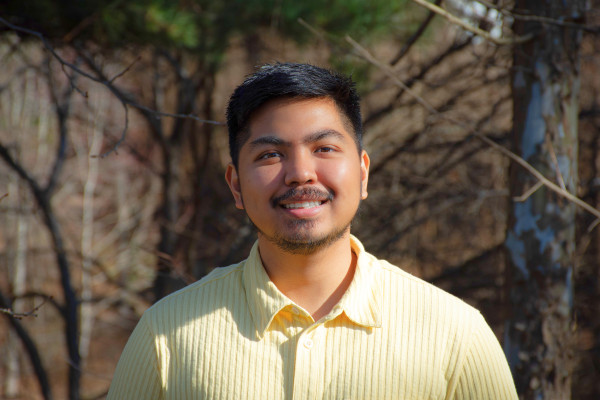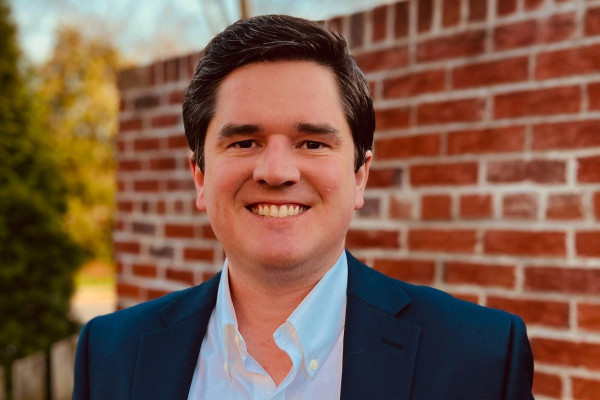Doctoral Student Applies Digital Skills to Study Russian Language, Culture

Slavic studies may not seem an obvious discipline in which to apply digital analytical tools. But for Aaron Thompson, a doctoral student with the University of Virginia’s Department of Slavic Languages and Literatures, digital methods are a way to expand the horizon of what is possible in humanities research.
“Digital thinking is changing not just the questions that we do ask but the questions we can ask,” he said.
Thompson’s background and research interests are emblematic of the breadth of UVA’s digital humanities program, which is open to graduate students from any department and any school.
With only two required courses and two electives, the program provides students with significant flexibility to take the classes they will need to make unique contributions to their fields and to elevate dialogue around the intersection of technology and society.
For Thompson, the skills he’s developed from pursuing the digital humanities certificate have allowed him to deepen his understanding of a language that he has come to love.
Studying Russian wasn’t on Thompson’s radar when he first enrolled at the University of Arizona, where he planned to focus on anthropology.
“I originally wanted to take Russian just for fun,” he said. “Then, over time, I just sort of fell in love with Russian culture and the language especially.”
His newfound passion for the Russian language would lead him to not only graduate with a degree in Russian and Slavic studies, along with anthropology, but to then move, in 2015, to Almaty, Kazakhstan, where he worked for nearly three years for an educational consulting agency.
During his time in Central Asia, he became fluent in Russian and gained a rich array of life experiences.
“The people were amazing, just hospitable and generous,” he recalled. “As long as you can deal with cold weather, it’s a beautiful place to live.”
By 2018, though, he was ready to take the next step in his academic journey and enrolled in UVA’s Slavic studies program. Just as studying Russian wasn’t top of mind when he first enrolled at the University of Arizona, digital tools weren’t at the forefront of his plans when he began graduate school.
“I really had a very narrow understanding of what could be done with digital technologies, especially in terms of academic research,” Thompson said.
But that would change, and he would soon take on the study of analyzing data with the same passion and energy that drove him to learn Russian years earlier.
“I dove into the deep end and tried to see what was out there,” he said. During his second year at UVA, he was invited to Stanford to engage with a Slavic-specific digital humanities group, an experience that helped sharpen his focus on how he could best use digital methods to further his research.
“A lot of my digital humanities work is about how language changes — how it used to be, how it is now, and where does that change come from,” Thompson explained.
For his dissertation, Thompson is using digital methods to examine how language from the Russian Bible and other culturally important Russian Orthodox stories found their way into the broader socialist vernacular during the period ranging from the fall of the Russian Empire through the Soviet Union.
As part of his research Thompson built a fully searchable Russian Orthodox Bible and used Python and other programming languages to investigate similarities between religious texts and the work of Maxim Gorky, an influential Russian socialist writer.
Thompson’s dissertation advisor is Edith Clowes, Brown-Forman Professor in the Department of Slavic Languages and Literature, who has seen firsthand the innovative approaches Thompson has used to better understand Russian language and literature.
“Aaron is always thinking about digital humanistic applications,” she said.
Clowes hired Thompson as a graduate research assistant during his first year at UVA as part of a collaboration with the Institute for Advanced Technology in the Humanities. Throughout the project, Thompson demonstrated an ability to navigate between different academic worlds, according to Clowes.
“Aaron proved himself an invaluable mediator between computer scientists and literary scholars on the team,” Clowes said. “He is adept at speaking both languages and translating between them.
Thompson will receive his Ph.D. later this year and has accepted a position as a tenure-track assistant professor with the Defense Department’s Defense Language Institute, based in Monterey, California.
He hopes to continue his engagement with the community of digital humanists in Slavic studies, particularly in light of the current geopolitical climate and government censorship in Russia.
“There’s a big opportunity for American Slavists, with the help of digital tools, to continue doing work and raising the voices of others,” Thompson said.
He added: “Having that digital community, which I wouldn’t have had without my digital humanities experience, is something that I’ll be taking with me.”

